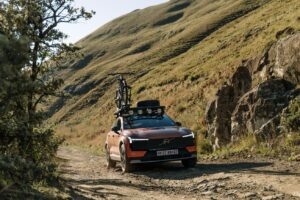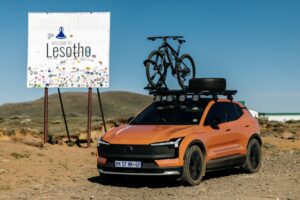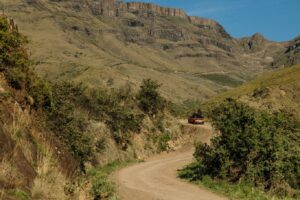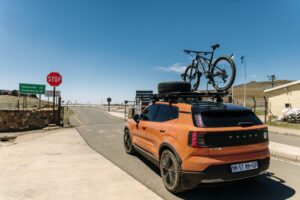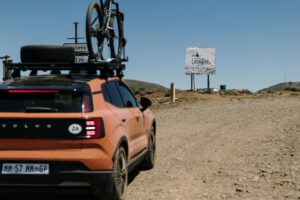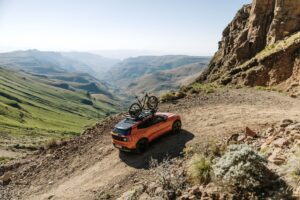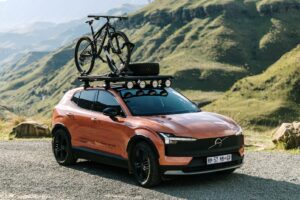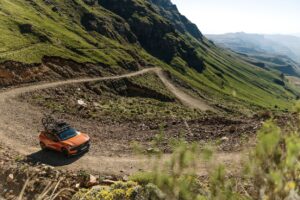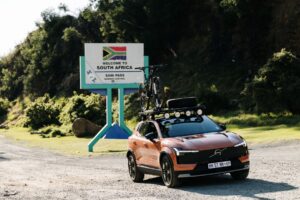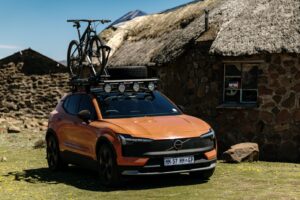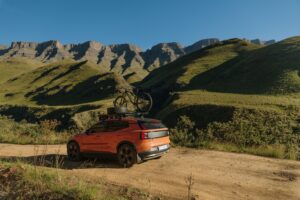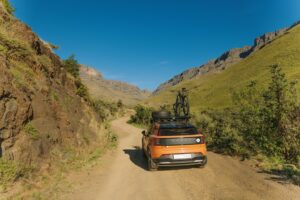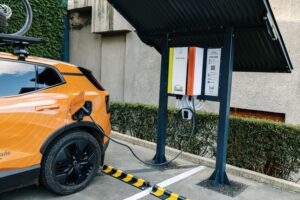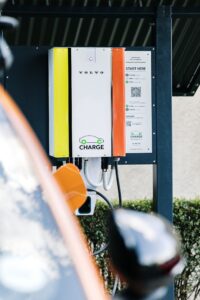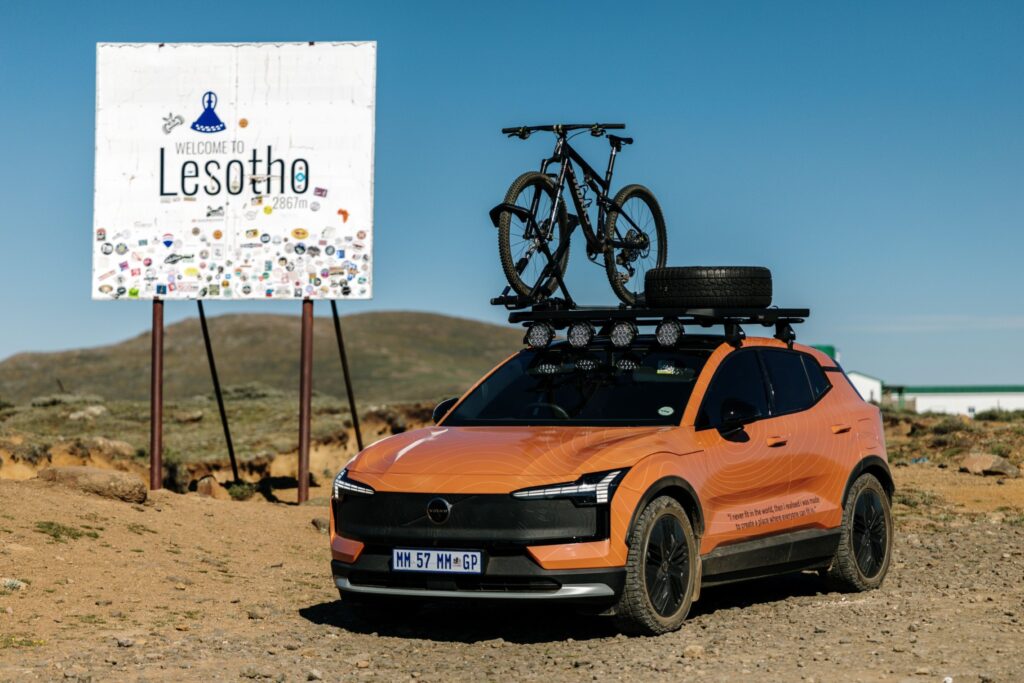
Volvo Car South Africa has marked the end of Transport Month with a major milestone in local electric mobility. The Volvo EX30 Cross Country has officially become the first fully electric vehicle to reach the top of Sani Pass, one of South Africa’s toughest and most iconic mountain routes. Winding through the Drakensberg Mountains, Sani Pass has long been a proving ground for vehicles built to withstand extreme gradients and unpredictable terrain. The EX30 Cross Country’s successful ascent demonstrates that electric power is not only viable but capable in the harshest of conditions.
The first Volvo reached the summit in 1969, highlighting the brand’s reputation for endurance and capability. More than half a century later, the EX30 Cross Country retraced those steps, this time powered entirely by electricity, showing how far engineering and technology have evolved since that first climb.
Compact yet powerful, the 315 kW EX30 Cross Country combines a rugged design with sustainable performance. Built to handle both city driving and rugged mountain terrain, it tackled Sani Pass’s demanding gradients, hairpin bends, and rocky surfaces with precision and composure. The climb proved that electric vehicles can thrive in places once dominated by combustion engines, and that capability and environmental responsibility can coexist.
Adding to the achievement, Volvo commissioned South Africa’s highest solar-powered EV charger, located just below the pass at 1,566 metres. Installed by CHARGE at Premier Resort Sani Pass, this charger enabled the EX30 Cross Country to complete the entire journey using only solar energy.
Grant Locke, Managing Director of Volvo Car South Africa, described the event as a defining moment for local electric mobility. “It demonstrates that electric vehicles can tackle the most challenging terrain, and that clean, sustainable energy can power adventure in even the most remote and rugged locations,” he said.
With this climb, Volvo not only made history but also set a new standard for what electric vehicles can achieve in South Africa’s most challenging environments.

